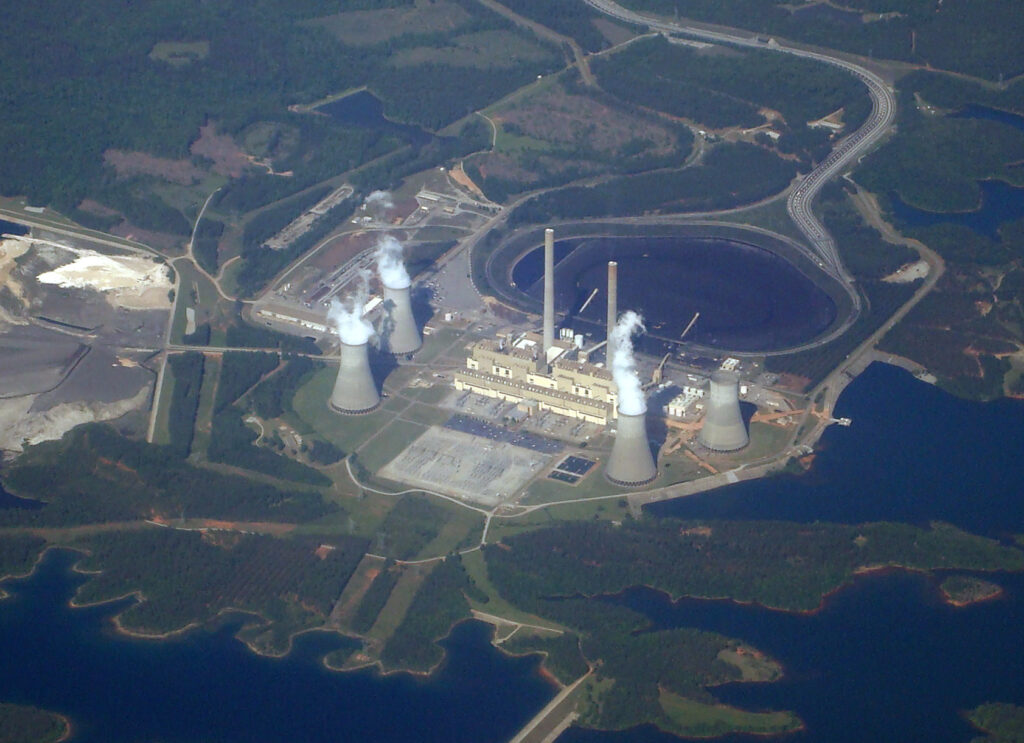
ATLANTA – Legislation increasing groundwater monitoring requirements for closed coal ash ponds drew support in the General Assembly Tuesday from Democrats and environmental advocates.
But both groups argued it wouldn’t go far enough to protect the drinking water of Georgians who live near the ponds from toxic contamination.
“Even though this is a good bill, I still think we need the added protection of a clay base and liner … before we lose more people to illness,” Rep. Debbie Buckner, D-Junction City, said shortly before the House Natural Resources and Environment Committee approved the measure and sent it on to the full House.
Coal ash, generated by burning coal at power plants, contains contaminants including mercury, cadmium and arsenic that can pollute groundwater and drinking water. Long-term exposure has been linked to a variety of cancers.
Since 2015, Georgia Power has been working on a multi-year plan to close all 29 of its coal ash ponds at 11 power plants across Georgia to meet both state and federal regulations for handling coal ash. While the Atlanta-based utility plans to excavate and remove the ash from 19 of those ponds, the other 10 are to be closed in place.
A substitute version of House Bill 647 the committee passed Tuesday would require groundwater monitoring at those closed ash ponds to be conducted for 50 years after closure is completed, up from 30 years under the original bill.
“I have a seven-month-old grandson,” Rep. Vance Smith, R-Pine Mountain, the bill’s chief sponsor, explained when asked why he decided to increase the monitoring period.
Permits the state Environmental Protection Division issues to close ash ponds require not only groundwater monitoring but proper drainage and a cap on the pond, said Chuck Mueller, chief of the EPD’s Land Protection Branch.
But April Lipscomb, an attorney with the Southern Environmental Law Center, said a cap is not protective enough. She said some of the ash ponds Georgia Power plans to close in place are “sitting in groundwater” despite the presence of a cap.
“We’re really concerned with what is going to happen 30 years from now when these coal ash ponds really start causing problems,” Lipscomb said.
Tuesday’s hearing on Smith’s bill included testimony from residents of Juliette, where Georgia Power faces a lawsuit claiming coal ash stored in an unlined pond at nearby Plant Scherer has contaminated groundwater around the site.
Michael Pless of Juliette called the bill “a starting place” but not strong enough.
“Putting a cap in is better than doing nothing,” he said. “But it falls far short of the safest option: to remove the coal ash and cap it in a lined facility.”
Michael Petelle, a retired science teacher from Marietta, expressed similar concerns about the area surrounding Georgia Power’s Plant McDonough in Cobb County, where contamination from coal ash has turned up offsite from the property.
“Testing alone is not the only solution,” he said. “This contamination would not occur if the ash was fully contained within a lined landfill.”
Chris Manganiello, water policy director for the environmental advocacy group Chattahoochee Riverkeeper, urged members of the legislature’s Republican majority to give a hearing to a bill sponsored by Buckner that would require storing coal ash in lined landfills.
But Smith said even lined landfills are not a guarantee.
“Liners are good if they never, ever have a default or deterioration,” he said. “But one small pinhole or a crack and you lose what you’re supposed to be doing.”
